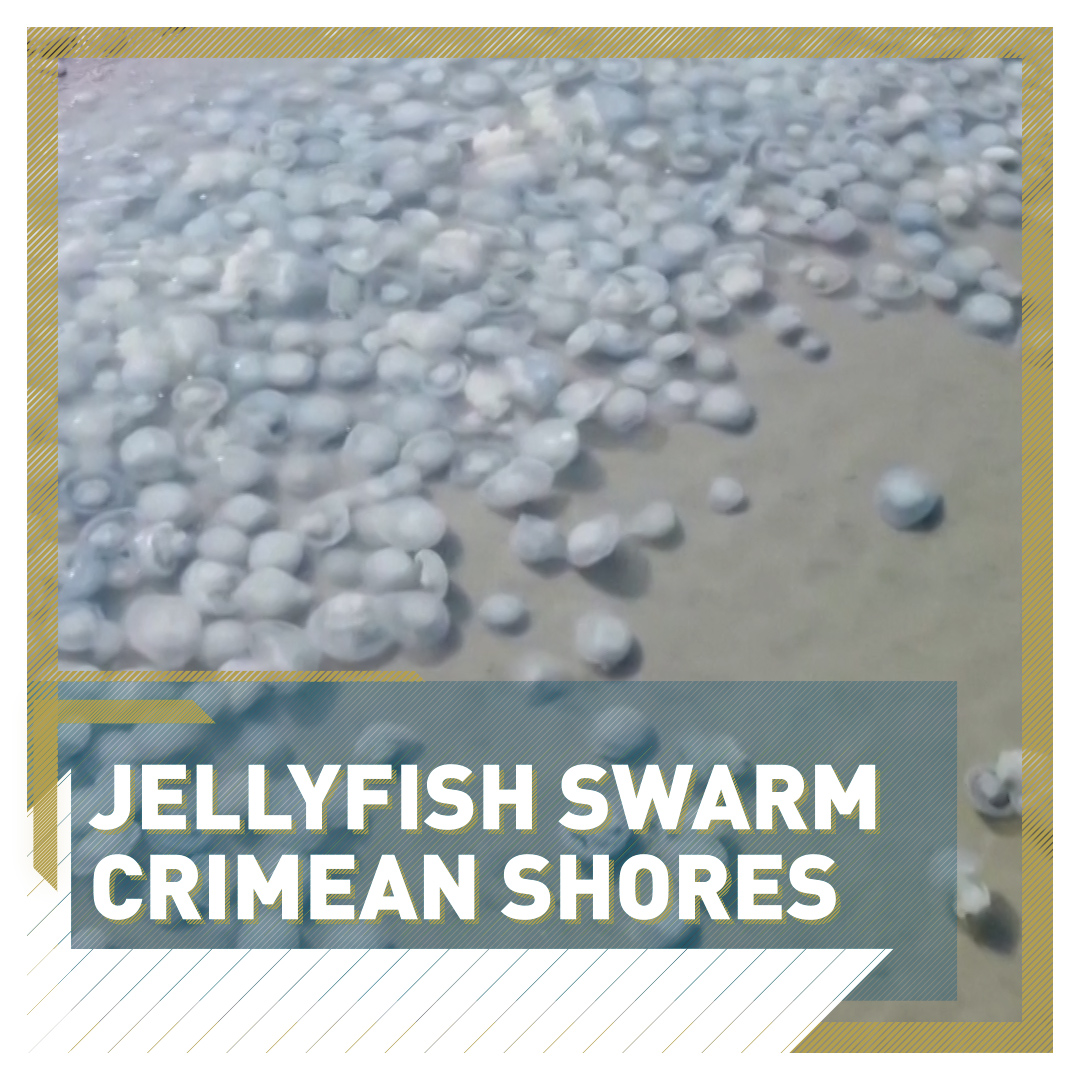00:42

Residents of Crimea and tourists coming to the peninsula for their holidays are having to compete with swarms of jellyfish for a spot under the sun.
Thousands of jellyfish washed up on the shore of a popular beach near Shcolkine village, prompting those who want to enjoy the warm Azov Sea to go elsewhere.
The rise in the jellyfish population is caused by warm and dry weather that has been stable in the region over the recent years, Russian Institute of South Sea Biology researcher Sergei Alyomov told Reuters.
READ MORE:
What is ISIS-K?
COVID-19 barcode tattoo
Space spoon revolution
The dry weather reduces the amount of fresh water flowing from the rivers to the sea, eventually making the seawater saltier, creating an ideal environment for jellyfish.
With lots of food to consume in the Azov Sea, jellyfish can quickly increase their population, Alyomov said.
The jellyfish population is likely to remain high as long as the water is salty enough, he added.
Two species of jellyfish live in the seas near Crimea but neither of them is life-threatening for humans, according to data by the Institute of South Sea Biology.
Although some tourists were still keen to get a swim among the jellyfish, the Shcolkine beach was largely empty.
Source(s): Reuters

